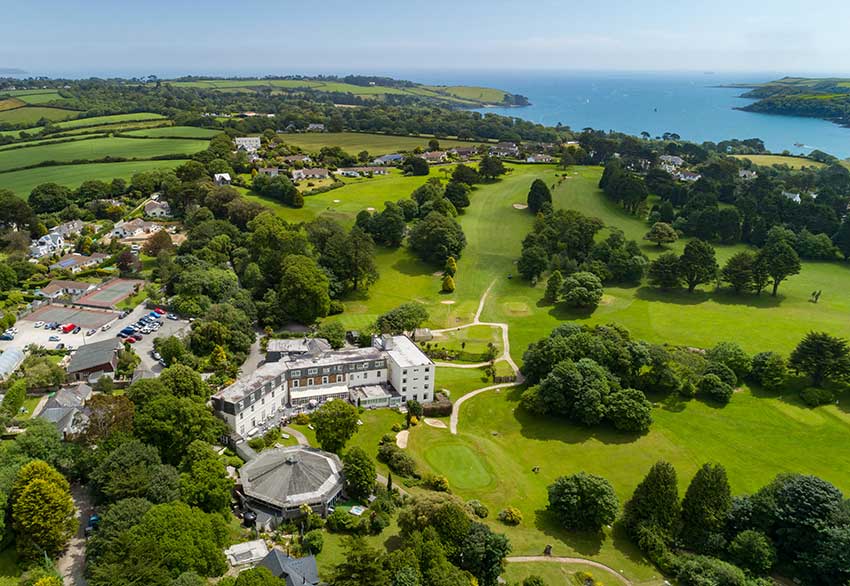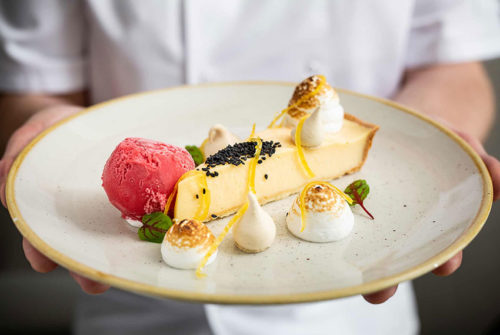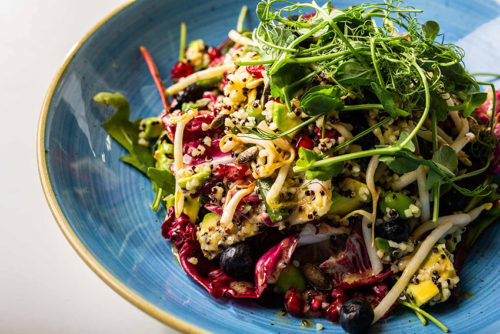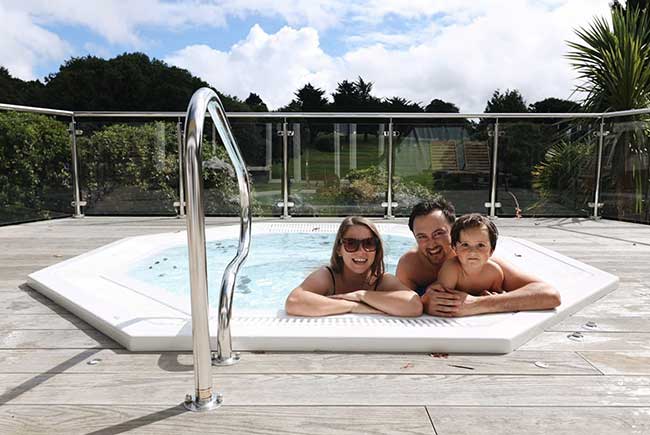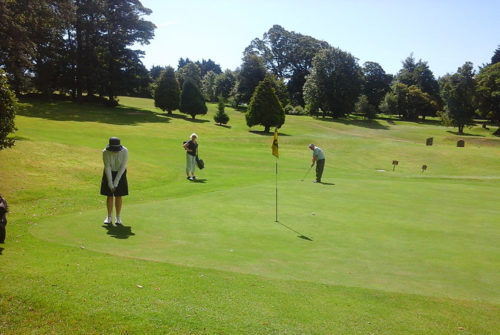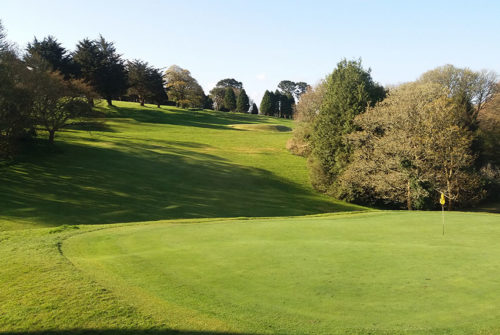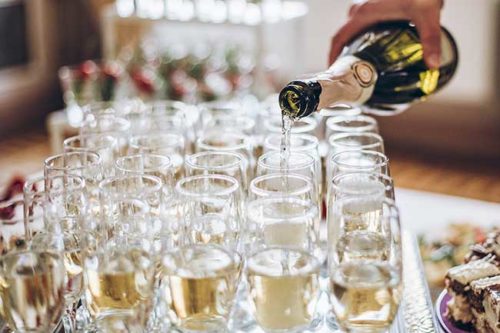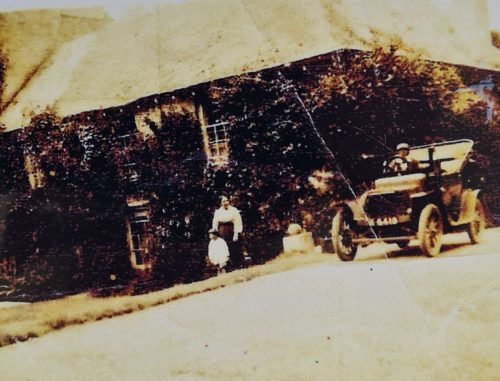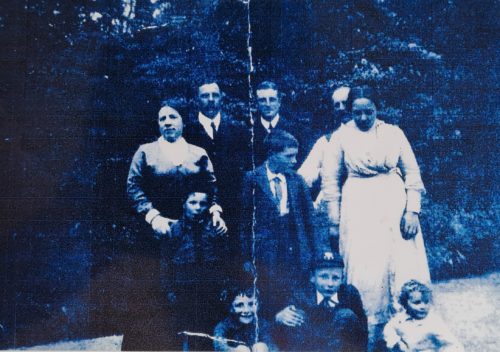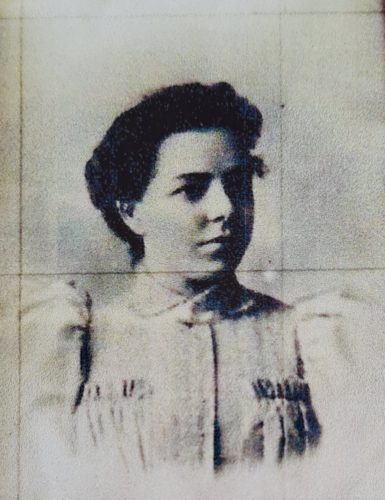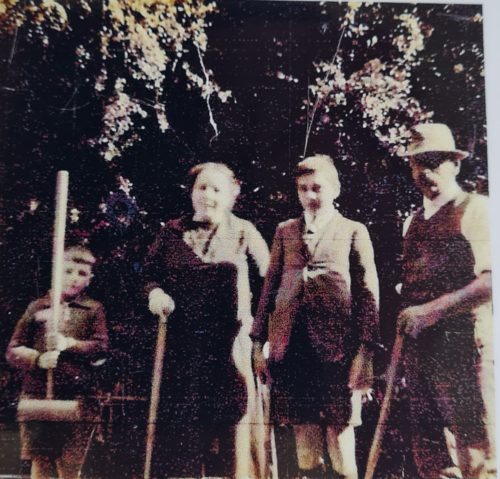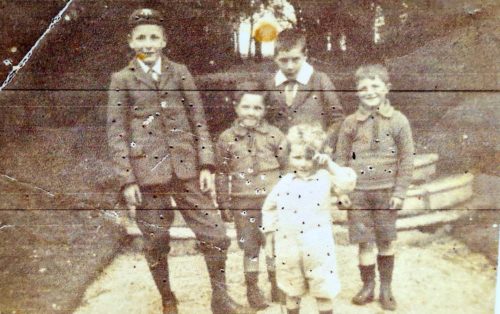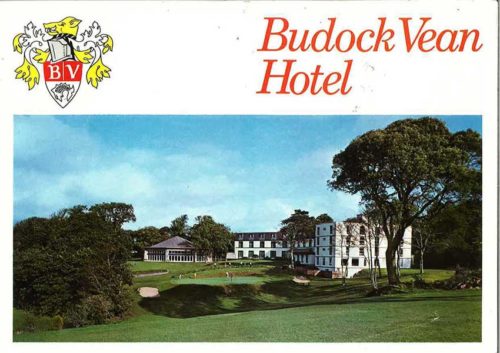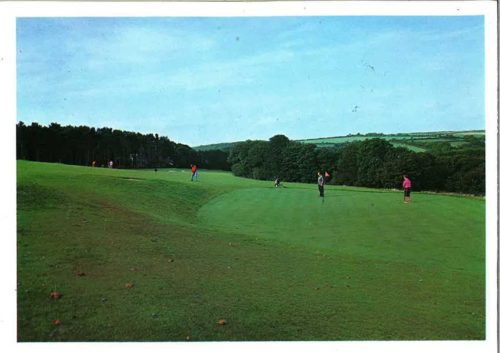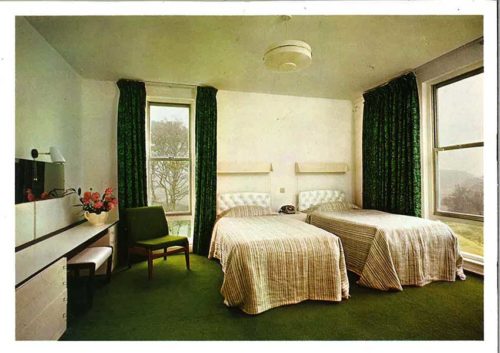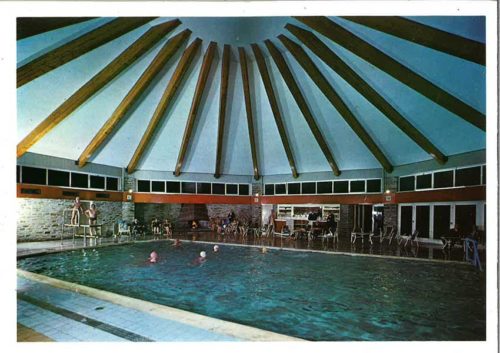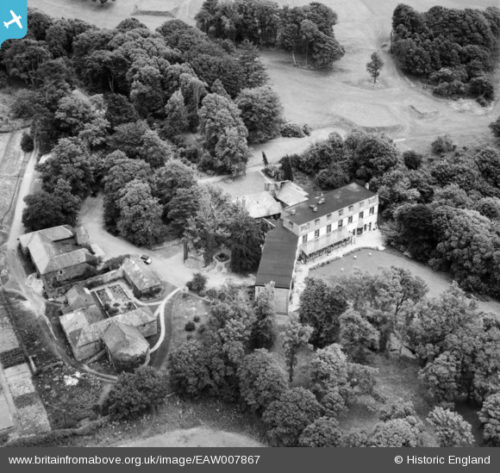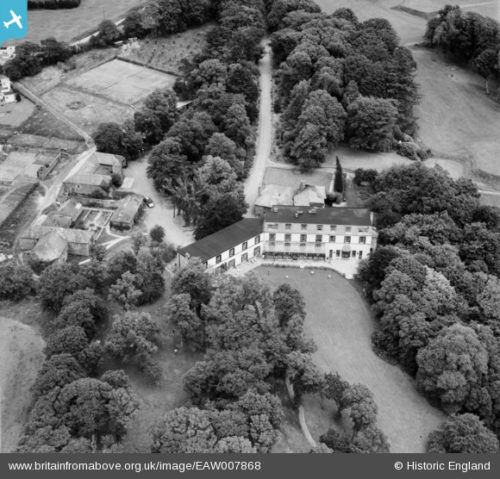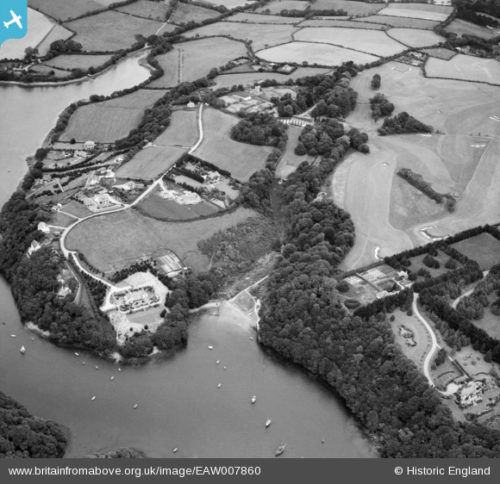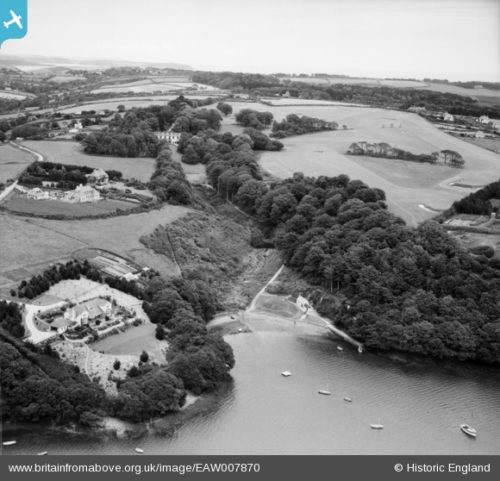The History of Budock Vean
Budock Vean has a rich and varied history which spans the worship of medieval saints to the popular holiday retreat of many 20th century film makers.
It is unclear when the first manor house at Budock Vean was built, but by 1538, the property was held jointly by John Penwern, Richard Retyn and John Carne, each of whom rendered to the Lord of the Manor at Penryn, 9 pence for a sheep, 2 pence for aid, 1¾ pence in lieu of ploughing and ¾ pence for reaping.
In 1715 the land passed into the possession of Henry Penrose and his wife Margery, before being taken on by Benjamin Pender in 1750 under a 99 year lease. The land passed on to Benjamin Pender junior after the death of his father in 1769. His son, Francis Pender, later inherited, before being succeeded by William Rous Tresilian Pender. If you head out of the hotel turning left at the end of the driveway and following the steep hill down you’ll find yourself at Anna Maria Creek named after Anna Maria Pender in 1833.
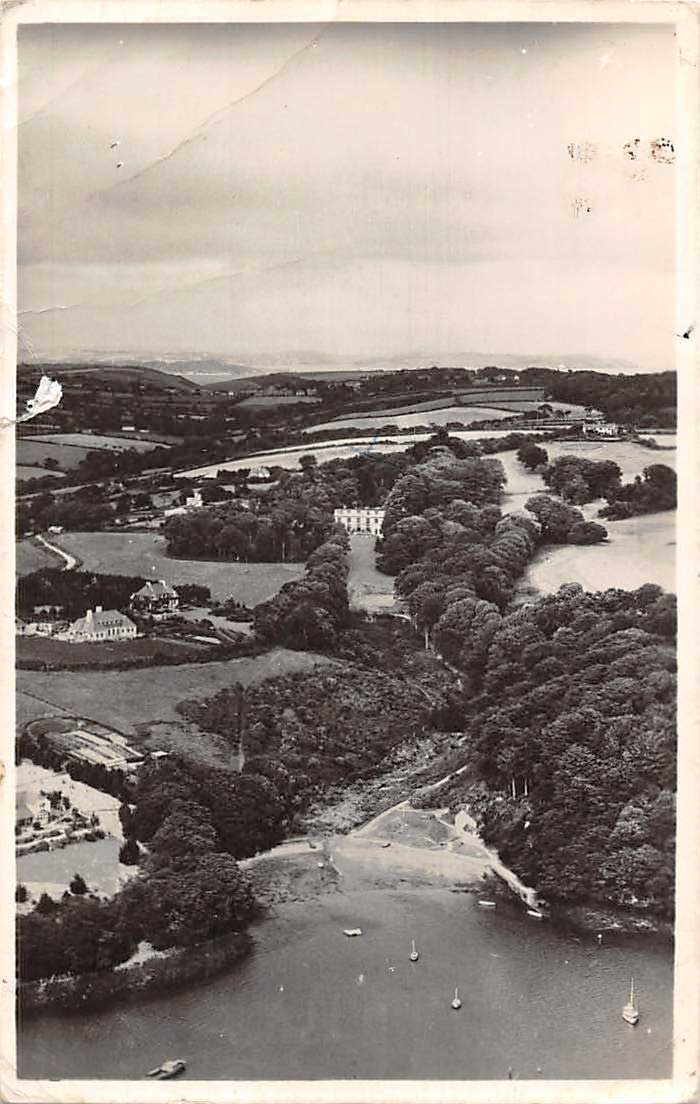
After nearly 200 years, Budock Vean left the ownership of the Pender family, and was sold to their tenant, Mr Dunstan, in 1921. Mr Dunstan then sold most of the estate to a Mr Taylor who intended to convert the manor into a country club, and the rest he sold off for residential housing. In 1930, after a visit to the deserted manor house, Harry Parkinson and Eddie Pilgrim took over the site and began acquiring capital from parts of the estate in order to procure funds for the refurbishment of the manor house itself. The process was sped along with the arrival of Walter Bartholomew, a friend of Parkinson, who put forward £10,000 for the manor’s development. At this point the manor house became what we now know it as today: Budock Vean Hotel, first appearing in The Sphere’s register of British Hotels in October 1933. The new hotel was eagerly anticipated, with hopes that its golf and tennis facilities would attract tourists to Falmouth, and that its development would make the district more accessible.
Former owner of Budock Vean, Harry Parkinson, produced a silent film documentary about the life of Charlie Chaplin in 1928. The documentary was suppressed by Chaplin and only resurfaced in the 1990s when a member of the Parkinson family discovered the film tucked away in a garage. It was sold at Christie’s Auction in 1997 for £17,250.
After opening, Budock Vean hotel was awarded AA, RAC, Hotel and Restaurant Association, Wine and Food Society recommendations, and received praise in the press. In 1935 Harry Parkinson moved back to London leaving Eddie Pilgrim to further develop the hotel, adding extra bedrooms and private suites. It was during this time, in May 1936, that writer Virginia Woolf stayed at the hotel. In one published letter to her nephew, Julian, she compliments the unspoilt bays around the Helford River, and her desire to purchase a cottage in the area (Banks, 1984; 186).
In 1937 Walter Bartholomew’s interest in the hotel was bought by Canadian Mr. H. Whiteside, a confectionary manufacturer who introduced Sun-Pat peanut butter into the UK. At this point Parkinson returned to Budock Vean as managing director. Just as Parkinson and Pilgrim designed the hotel to be a first-class experience, Whiteside aimed to create an atmosphere of more than just a conventional hotel, but of a family country house. A regular clientele was established, including several figures from show business, such as George Black, managing director of the London Palladium, and film distributer C.M. Woolf along with his sons John and James, who were involved in the production of feature films such as The African Queen (1951).
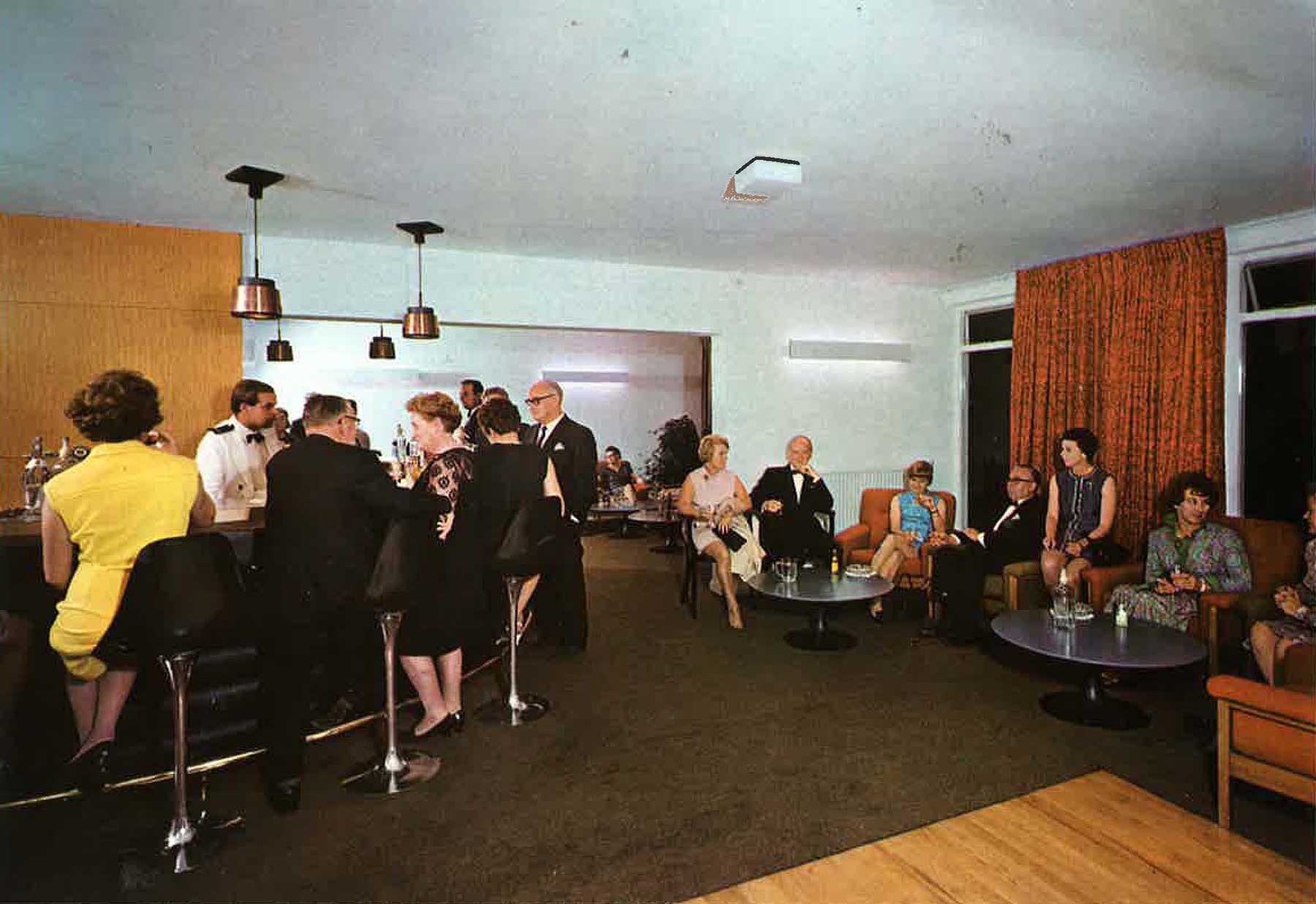
Throughout the 1940s Budock Vean continued to run as a successful hotel, providing a temporary escape for some from the second world war with its isolated country setting. The hotel featured in several articles of The Illustrated Sporting and Dramatic News, receiving praise for its facilities, location, food, and staffing. In his memoires, former owner Harry B. Parkinson recalls how sometimes sailors from the Royal Navy would turn up in large groups whilst they were docked in Falmouth. At this time, the ceiling of the cocktail lounge was decorated with a stuffed monkey – a Christmas gift given to Parkinson – which the sailors took with them as their lucky mascot. When the US Air Force came to West Cornwall in 1944 the hotel was no longer open for civilians and effectively became a restaurant catering to uniformed men and women. After the war ended, Budock Vean returned to its function as a hotel.
The hotel was purchased by the Barlow family in 1987 and Martin Barlow took over the running from his mother and father in June 2000.
In November 2024 Budock Vean entered a brand new phase of life, becoming part of the Philema Hospitality Group sitting alongside The Esplanade and Fistral Beach Hotel in Newquay and Boringdon Hall Hotel.

